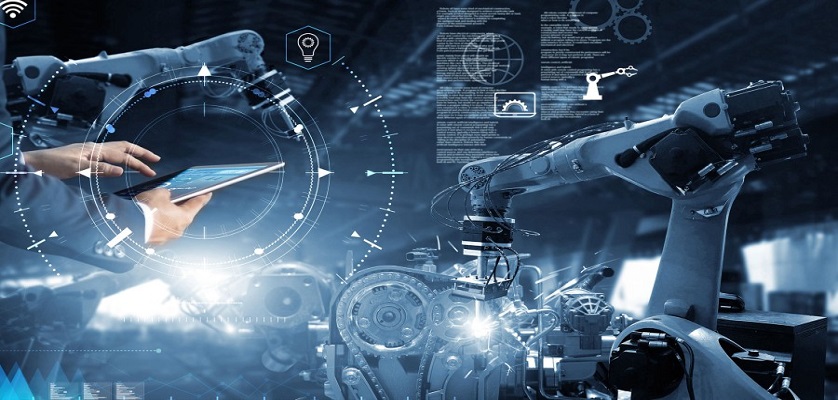In the fast-paced world of today, digital transformation has become a necessity for businesses and individuals alike. The rapid advancement of technology has not only changed the way we live and work but has also brought about a wave of innovative solutions that promise to reshape industries and societies. In this article, we will explore some of the latest technologies that are driving digital transformation and revolutionizing the way we do business, communicate, and live our lives.
AI and Machine Learning Technologies
Artificial Intelligence (AI) and Machine Learning (ML) have been at the forefront of digital transformation for several years now. AI-powered systems and algorithms are capable of performing complex tasks that were once the exclusive domain of humans. These technologies are being used to enhance customer experiences, optimize operations, and make data-driven decisions.
Chatbots and virtual assistants powered by AI have revolutionized customer support by providing instant responses and personalized interactions. In healthcare, AI is helping doctors diagnose diseases more accurately and quickly by analyzing medical images and patient data. Additionally, businesses are leveraging AI and ML to predict customer preferences, streamline supply chains, and identify potential risks, thus gaining a competitive edge.
Internet of Things (IoT)
The Internet of Things (IoT) is another transformative technology that is reshaping industries. The essence of IoT is to connect useful objects and devices to the Internet and enable them to understand, collect, and share data. This data can be used to improve efficiency, automate processes, and enhance decision-making.
In agriculture, IoT sensors are used to monitor soil conditions, crop health, and weather patterns, allowing farmers to optimize their farming practices and increase yields. In smart cities, IoT technologies are used to improve traffic management, reduce energy consumption, and enhance public safety. Moreover, IoT-enabled smart homes provide homeowners with greater control over their appliances, security systems, and energy consumption, leading to more sustainable and convenient living.
5G Connectivity
The 5G network is set to bring a huge change in the way we connect and access the internet. With significantly higher speeds and lower latency compared to previous generations of wireless technology, 5G enables a wide range of applications that were previously impossible or impractical.
In the business world, 5G will facilitate the growth of remote work and enhance collaboration through high-quality video conferencing and augmented reality (AR) applications. In healthcare, 5G will enable real-time monitoring of patients and support telemedicine, making healthcare more accessible and efficient. Moreover, the entertainment industry will benefit from immersive experiences, such as augmented reality gaming and virtual reality concerts, made possible by 5G’s capabilities.
Blockchain Technology
Blockchain technology, best known as the foundation of cryptocurrencies like Bitcoin, has evolved beyond digital currencies and is finding applications in various industries. Its core attributes of transparency, security, and immutability make it an ideal solution for digital transformation.
In supply chain management, blockchain is used to create transparent and traceable records of products as they move through the supply chain, reducing fraud and improving accountability. In finance, blockchain has the potential to streamline cross-border payments and eliminate intermediaries, reducing transaction costs. Furthermore, blockchain can enhance the security and privacy of data by allowing users to have greater control over their personal information.
Augmented Reality (AR) and Virtual Reality (VR).
Augmented Reality (AR) and Virtual Reality (VR) technologies are taking user experiences to a whole new level. AR sheds digital Information on reality whereas VR depicts a complete illusion. Both technologies have far-reaching implications for industries ranging from gaming and education to healthcare and real estate.
In education, AR can enhance learning by providing interactive 3D models and overlays of information in textbooks. In healthcare, surgeons can use AR to visualize complex procedures in real time, increasing precision. On the other hand, VR can be used for immersive training simulations, helping employees acquire new skills in a safe and controlled environment. In real estate, VR allows potential buyers to tour properties without leaving their homes, saving time and resources.
Edge Computing
Edge computing is an emerging technology that is poised to transform the way data is processed and managed. Unlike traditional cloud computing, which relies on centralized data centers, edge computing brings computing resources closer to the data source.
This is particularly important for applications that require low latency and real-time processing, such as autonomous vehicles and industrial automation. By processing data at the edge, businesses can reduce network latency and improve response times, leading to more efficient and reliable operations.
Conclusion
Digital transformation is an ongoing process that involves harnessing the latest technologies to improve business processes, enhance customer experiences, and drive innovation. The technologies discussed in this article, including AI and ML, IoT, 5G, blockchain, AR, VR, and edge computing, are at the forefront of this transformation.
To thrive in the digital age, businesses and individuals must adapt to these technologies and leverage them to their advantage. Embracing digital transformation is not just about staying competitive; it’s about shaping a better future where technology enhances our lives and empowers us to achieve more than ever before. As these technologies continue to evolve, we can only imagine the exciting possibilities they will bring to our increasingly interconnected world.

